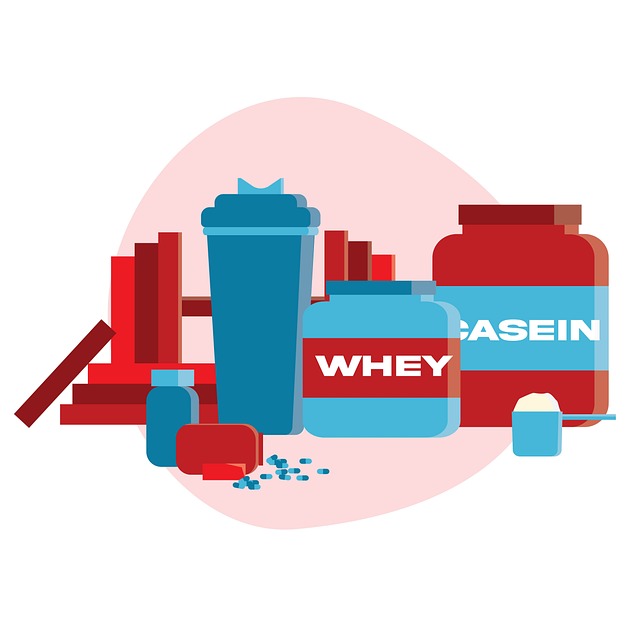Vitamin K2: The Unsung Hero of Bone and Heart Health
Vitamin K2, a lesser-known nutrient in the vitamin K family, has been quietly gaining attention in scientific circles for its profound impact on bone and cardiovascular health. While its cousin, vitamin K1, has long been recognized for its role in blood clotting, K2 has emerged as a critical player in calcium regulation throughout the body. This fat-soluble vitamin, found primarily in fermented foods and animal products, has been the subject of increasing research over the past two decades. Its ability to activate proteins that direct calcium to bones and teeth, while preventing calcium buildup in arteries and soft tissues, has positioned vitamin K2 as a potential game-changer in the fight against osteoporosis and heart disease.

Japanese scientists led the way in K2 research, studying its effects on bone health in postmenopausal women. Their groundbreaking studies showed that K2 supplementation could significantly reduce bone loss and fracture risk. This sparked a wave of interest in the scientific community, leading to further investigations into K2’s role in cardiovascular health, diabetes, and even cancer prevention.
The Biochemistry Behind K2’s Bone-Boosting Powers
At the molecular level, vitamin K2 acts as a cofactor for an enzyme called gamma-glutamyl carboxylase. This enzyme is responsible for activating several important proteins, including osteocalcin and matrix Gla protein (MGP). Osteocalcin plays a crucial role in bone formation by helping to bind calcium to the bone matrix. When activated by K2, osteocalcin becomes “carboxylated,” enhancing its ability to attract calcium to bones and teeth.
This process is particularly important for maintaining bone density as we age. Studies have shown that individuals with higher levels of activated osteocalcin tend to have stronger bones and a lower risk of fractures. Furthermore, K2 supplementation has been found to increase bone mineral density in postmenopausal women and older adults, making it a promising tool in the prevention and treatment of osteoporosis.
Cardiovascular Protection: K2’s Double-Edged Sword
While K2’s role in bone health is impressive, its impact on cardiovascular health is equally noteworthy. The key to this effect lies in its activation of matrix Gla protein (MGP). When properly activated by K2, MGP acts as a powerful inhibitor of vascular calcification – the process by which calcium builds up in artery walls, leading to hardening and reduced elasticity.
This dual action of K2 – directing calcium to bones while preventing its accumulation in arteries – has led some researchers to dub it the “calcium paradox” vitamin. Large-scale observational studies, particularly the Rotterdam Study, have shown that individuals with higher K2 intake have a significantly lower risk of arterial calcification and cardiovascular disease. These findings suggest that K2 could play a crucial role in maintaining heart health, especially in aging populations.
The K2 Conundrum: Dietary Sources and Supplementation
Despite its importance, obtaining adequate vitamin K2 through diet alone can be challenging, especially in Western countries. The richest dietary sources of K2 include natto (a fermented soybean dish popular in Japan), certain cheeses (particularly those made with bacterial cultures), and organ meats. However, these foods are not staples in many diets, leading to potential widespread deficiency.
This has sparked debate in the nutrition community about the need for K2 supplementation. While some experts argue that a balanced diet should provide sufficient K2, others point to the difficulty of obtaining optimal levels through food alone, especially given the nutrient’s critical role in health. Supplement forms of K2 typically come in two varieties: MK-4 and MK-7. MK-7, derived from natto, is often preferred due to its longer half-life in the body, allowing for sustained activation of K2-dependent proteins.
Beyond Bones and Heart: Emerging Research on K2
As research on vitamin K2 continues to expand, scientists are uncovering potential benefits beyond bone and cardiovascular health. Recent studies have explored K2’s role in insulin sensitivity and glucose metabolism, suggesting it may have applications in diabetes management. Additionally, preliminary research has indicated possible anti-cancer properties, particularly in relation to prostate and liver cancers.
Another intriguing area of study is K2’s potential impact on brain health. Some researchers hypothesize that K2 may play a role in preventing or slowing the progression of neurodegenerative diseases like Alzheimer’s, though this research is still in its early stages.
The Future of K2: Challenges and Opportunities
As awareness of vitamin K2’s importance grows, so do the challenges and opportunities surrounding its research and application. One significant hurdle is the lack of standardized testing for K2 status in individuals, making it difficult to assess deficiency rates accurately. Additionally, more long-term clinical trials are needed to fully understand the optimal dosage and potential interactions with other nutrients and medications.
Despite these challenges, the future of K2 research looks promising. As our understanding of its mechanisms deepens, we may see K2 become a standard recommendation for bone and heart health, much like vitamin D is today. The potential for K2 to address multiple aspects of aging – from maintaining strong bones to protecting heart and brain health – positions it as a valuable tool in the quest for healthy longevity.
In conclusion, vitamin K2 stands as a testament to the ongoing discoveries in nutritional science. Its multifaceted role in human health, from bone strength to cardiovascular protection, underscores the importance of continued research into even well-established nutrient families. As we unravel more of K2’s secrets, it may prove to be a crucial component in our arsenal against age-related diseases, offering a simple yet powerful means of supporting overall health and well-being.





